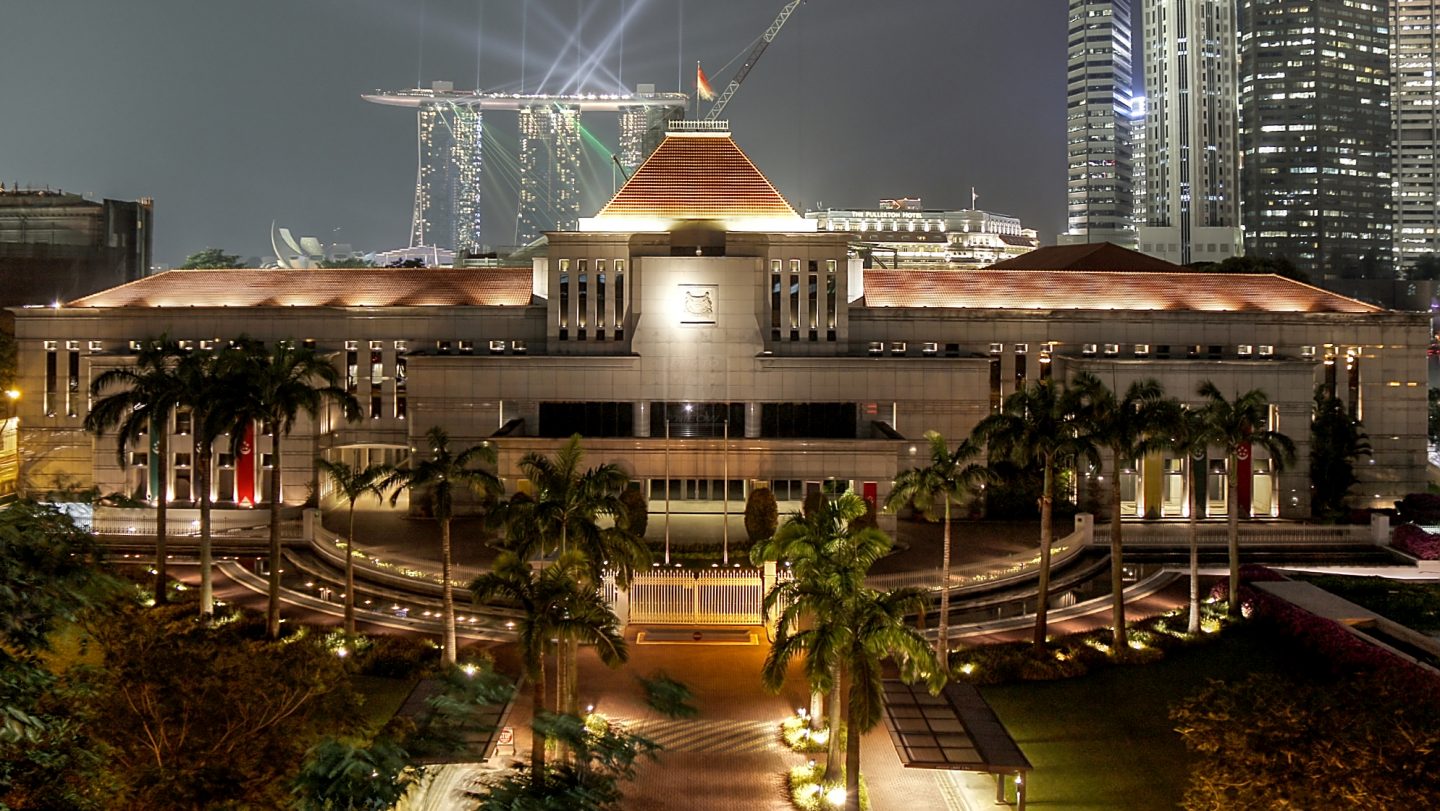
"While secular human rights visibly advocate social justice, we actually don’t need to look further where this came from. Our inspiration lies in God’s original blueprint and divine benchmark to create all of us in His own image," observes Elder Jimmy Tan. Photo of Parliament House on Wikimedia Commons.
Called to vote at an unprecedented time, Singaporeans are going to the polls on 10 July.
Citizens aged 21 years and above will be voting in the next government. But whether or not you need to vote, do you know that governments, whatever the form, figure quite a bit in the Bible?
So before you are next tempted to rant online for or against any party, or resign yourself in apathy, here are 4Gs from Scripture about how God views all local governments, regardless of who finally represents us.
(Many of the points are based on my reflections on an excellent article entitled, The Purpose and Role of Government by Michael Oh in the ESV Global Study Bible, which I hope you will also read.)
1. Governments are God’s “go-between”
Do you know that those who in positions of authority are actually also called God’s servants or ministers? (Romans 13:3,6) It’s not just a title or posture for believers or those in full-time service.
As His agents, governments have authority that is derived and limited.
Think it’s you who’ll decide who ends up in government? Yes, your vote is important. But every ruling authority that exists, ever existed or will exist, is there only because God established it (Romans 13:1-2).
This also means that as His agents, governments have authority that is derived and limited. In John 19:10-11, when Pilate threatened Jesus, He firmly reminded Pilate that he only held power because it was given by God.
Know that God not only establishes governments but is sovereignly involved in their tenure and hence, to put it starkly, removal too. (Psalms 75:7, Daniel 2:21)
Meanwhile, apart from instances where one is asked by people to disobey God (Acts 5:29), if anyone rejects these established-by-God authorities or the laws in place under their administration, one actually risks judgement. (Romans 13:2)
Hence, we render or give what is due them – be it taxes, revenue, respect or honour (Romans 13:6-7).
Prayer Pause #1
Almighty God, help us remember that governments or government leaders neither take Your place, nor should we treat them as such, no matter how much we honour or admire them. But we shouldn’t reject whatever authority you have put in place, for to not submit to their derived authority is also sin.
Help us to look beyond them to You, our sovereign God and King. This way, we know we can submit to them not just out of the fear of punishment but for the sake of our conscience. (Romans 13:5) Help us, Lord, to submit out of reverence for Christ. (Ephesians 5:21)
2. Governments are for our good
It is easy for us to take this for granted in comparatively well-oiled and well-heeled Singapore Inc. Yet Romans 13:4 reminds us that God establishes government authority to act for the common good of all. What yardstick does God provide? What kind of good are we talking about?
First, all the laws and courts put in place are supposed to administer justice for our protection and the punishment of the wrongdoer. Romans 13:4 (ESV) says, “For he (the magistrate, the government’s representative) is the servant of God, an avenger who carries out God’s wrath on the wrongdoer.”
Are we thankful for the lack of systemic corruption in our country? Of course, never forget that ultimate authority to administer justice and vengeance belong to God alone. (Romans 12:19)
God gave us governments to not only punish wrongdoing but commend, well, “good-doing”.
Secondly, while secular human rights visibly (and often, loudly) advocate social justice, we actually don’t need to look further where this came from. Our inspiration lies in God’s original blueprint and divine benchmark to create all of us in His own image. (Genesis 1:26-27)
ESV Bible commentator Michael Oh encourages us, “It is right, therefore, for Christians to seek to influence governments to protect society’s weakest members, including the poor (Exodus 23:6), foreigners (Exodus 22:21; Deuteronomy 27:19; Zechariah 7:10) and the helpless (Psalm 82:3-4). The life of unborn children, in particular, as image bearers of God and as the weakest members of society, ought to be protected (see Psalm 139).”
If we take this list, how do we fare as a society in doing good?
Certainly government and non-government moves in some of the above are to be lauded. And Christians must not lose sight that different parties and agencies can differ in the strategies to go about achieving these. Yet there’s always room for more good to be done here.
A third good for any government to do is to manage God’s material creation. While God has created all things (Genesis 1), we mortals (both government and citizenry) are given the awesome privilege to steward God’s creation. And it’s not just Creation-care per se but also the wise development of scarce land that are aspects of stewardship. Are we faster, though, to jump on one band wagon at the expense of the other?
Finally, the Apostle Peter reminds us that God gave us governments to not only punish wrongdoing but commend, well, “good-doing”. (1 Peter 2:14) This echoes the encouragement in Romans 13:3 to us to “do what is good, and you will receive his (i.e. the authority’s) approval, for he is God’s servant for your good”.
While that may be so, Christians must look only to God for applause, even as the world may pour or withhold its accolades.
Compelled and empowered by God’s love (1 John 4:19), we of all people should never flinch from setting the pace to do good for our fellow human kind. Then we not only prove we love God with all our heart, soul, mind and strength (Mark 12:30) but we truly love our neighbour as ourselves (Matthew 22:39).
Christians must look only to God for applause, even as the world may pour or withhold its accolades.
In the history of Christianity in Singapore, any good work our churches do now rests on the shoulders of many pioneering initiatives. These blossomed in the fertile environment of the government of the day, some of which the late Dr Bobbly Sng highlighted in his book, “In His Good Time – The Story of the Church in Singapore 1819-1978”.
These include the set-up of healthcare institutions (eg St Andrew’s Church Mission, and also, later, St Luke’s Hospital), the provision of education for girls (eg Sophia Cooke’s Chinese Girl’s School), orphanages or services to the handicapped (eg The Salvation Army) and social services in areas of high social stigma or neglect (think Prison Fellowship Singapore).
We must also thank God for the “Daniels” and “Josephs” who, through the years, have served behind the scenes with excellence to achieve much for Singapore’s good through whatever appointments they were called to.
May we pray for future governments to continue to do and facilitate good! And may Daniel 12:3 ring true for us as we shine His Gospel light in both action and testimony before the watching world till Jesus comes – “Those who are wise will shine like the brightness of the heavens, and those who lead many to righteousness, like the stars for ever and ever.”
Prayer Pause #2
Father, because You are good, all good that anyone does can ultimately be traced back to You. Help us to uphold and encourage the good that comes to society through our government. Enable us to be part of any good solution – in deed and not just words.
We seek to follow our Lord Jesus who laid out His Kingdom manifesto to “the poor… the prisoners …the blind … the oppressed”. (Luke 4:18) Only He achieved for us shalom (wholeness) by going all the way to the Cross – securing not just temporal but eternal good.
Keep our sights set high and trained on You, undistracted by the stormy winds and waves of electioneering that will surely come!
These are the first two of four pointers as a call to prayer for Christians in the upcoming General Elections 2020. Look out for the next two points on July 6.
We are an independent, non-profit organisation that relies on the generosity of our readers, such as yourself, to continue serving the kingdom. Every dollar donated goes directly back into our editorial coverage.
Would you consider partnering with us in our kingdom work by supporting us financially, either as a one-off donation, or a recurring pledge?
Support Salt&Light



